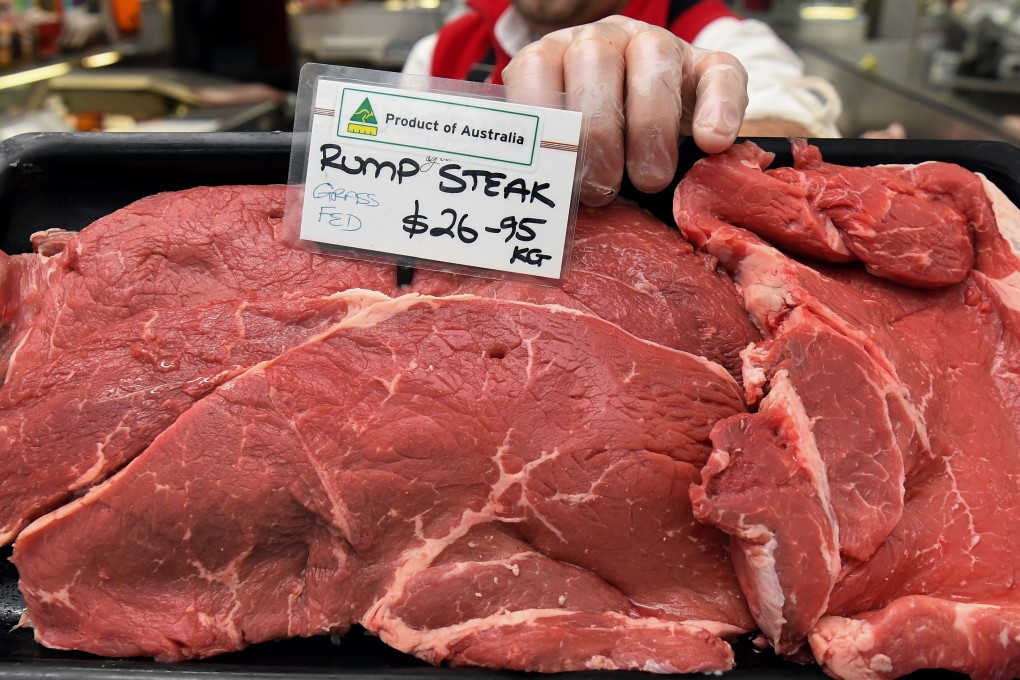US seeing more shipments of Australian meat tainted with faeces: documents
- Ten shipments of meat from Australia were in 2020 refused by US food safety officials because of contamination, up from one in 2019 and four in 2018
- Labour and food safety groups attribute the problem to an Australian system that increasingly allows companies to inspect their own meat

US food safety officials have blocked a rising number of meat shipments from Australia since 2019 due to faecal contamination, straining trade relations between the two countries, according to documents reviewed by Reuters.
Labour and food safety groups attribute the problem to an Australian system that increasingly allows companies to inspect their own meat, replacing government inspectors.
Similar efforts to privatise inspections are under way in other major meat-producing countries including the United States.

Ten shipments of meat from Australia, America’s second biggest foreign meat supplier, were refused by the US Food Safety and Inspection Service (FSIS) because of contamination with faeces or other digestive matter in 2020, up from one in 2019 and four in 2018, according to internal data from the US Department of Agriculture (USDA) included within the documents.
Canada and New Zealand, two other large suppliers of meat to the US, each only had one rejected shipment for contamination with faecal or other digestive matter in 2020, the internal data show. Mexico, another major supplier, had none.
Another three shipments of Australian meat were rejected for the same reason during the first two months of 2021, compared to one from New Zealand and none from Canada or Mexico, the data show. More recent figures were not included in the documents reviewed by Reuters, and the USDA declined to provide them when asked.